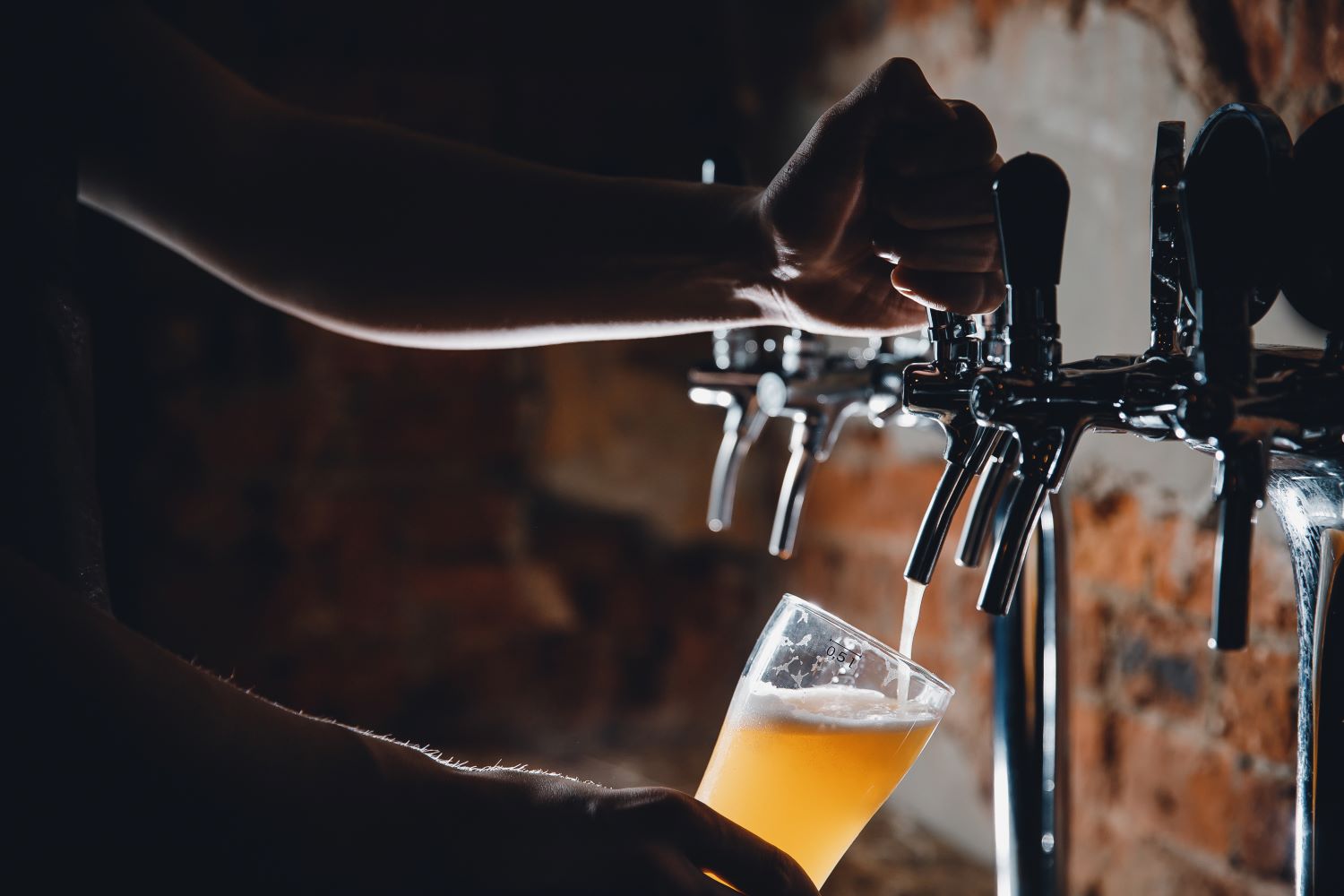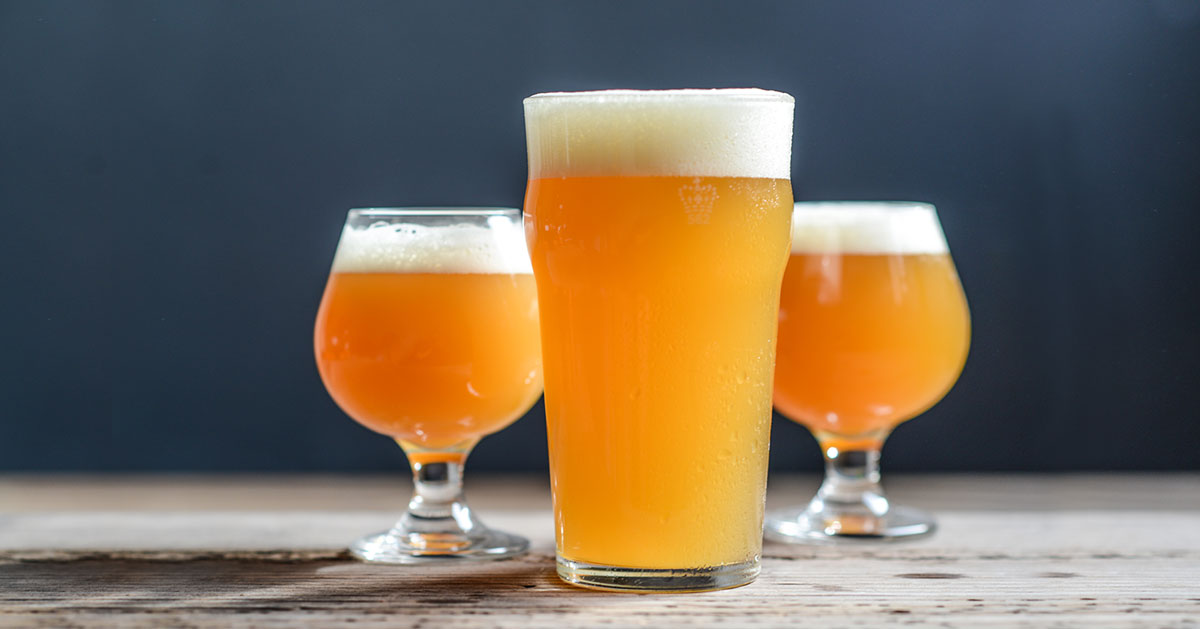Is It Safe To Drink Homemade Beer?
You’ve probably heard horror stories about moonshine that makes you blind and cans of food puffing up with botulism. If you have, then you might be wondering if making your own beer comes with the same risks. The good news is that it’s usually safe to drink your homebrews and share them, too!
In this blog, we’ll cover the different risks of homebrewing and how different techniques and tools (like a beer-making kit and online brewing supplies) can increase safety and your odds of success.
Is It Safe To Drink Home Brewed Beer?
In most cases, home-brewed beer is safe to drink as long as you follow the proper steps. This is great news for brewers because there are few things better than popping the tops off of beers with those close to you—especially when you’re the one who brewed them!
Unfortunately, news of homemade liquor accidents can make some people reluctant to try homebrewed beer. It can be reassuring to know that making liquor and making beer are two fundamentally different processes (they even make different kinds of alcohol). You can make your homebrews as safe as possible to drink by:
- Sanitizing all of your equipment immediately before each use
- Following brewing instructions, especially when it comes to boiling temperatures and cooling procedures
- Encouraging consumption in moderation
What Are the Risks of Brewing Beer?
The risks of brewing beer at home are low and typically result in a bad taste in your mouth rather than a visit to the hospital. However, it’s still important to take safety seriously to keep health risks to a minimum. The most common risks of brewing beer are:
- Overconsumption: The most frequent ailment that comes from consuming alcohol of any type is from drinking too much. When you’re drinking homemade beer, it’s still important to eat a solid meal, pace yourself, and avoid driving and other dangerous tasks while under the influence.
- Wasted Beer: This isn’t a physical risk, but it can strain your mental health. Throwing away beer sucks—especially after you invest weeks of your time to brew a single batch. Still, it’s better to pour questionable beer down the drain than to get yourself or others sick.
- Upset Stomach: Contaminated beer—whether from mold or bacteria—will usually cause nothing worse than a stomach ache. This still isn’t fun for you or your friends, so it’s important to spot the signs before turning those bottoms up (which we’ll cover later in this article).
As with all food and beverages, more severe risks are still possible. It’s critical to prioritize safety during your brewing process and contact a health professional if you or anyone else experiences symptoms such as:
- Vomiting
- Flushed Skin
- Difficulty Swallowing
- Muscle Weakness
- Difficulty Breathing
How Do I Know If My Homebrew Is Contaminated?
You can tell if your homebrew is contaminated through your sight, smell, and taste. Watch out for these beer infection signs:
- Contamination You Can See: Watch out for fuzzy mold that grows on top of the beer, slimy strands that float within the beer, or a sheen that covers the top of the beer.
- Contamination You Can Smell: Just like with laundry, the sniff test can help during quality control for your homebrewed brewskis!
- Contamination You Can Taste: A spoiled flavor or overwhelming butterscotch taste can be a signal for contamination. If it doesn’t taste like you’re used to, then something’s probably off!
It’s better to be safe than sorry. If you notice these signs, then it’s time to start fresh with a new batch. Aside from the health effects, the contaminated beer won’t taste any good.
How Can You Tell If Homemade Beer Is Safe To Drink?
Typically, your homemade beer is safe to drink if it looks, smells, and tastes like beer! Bad batches tend to rat themselves out with fuzzy, slimy, or oily growths. They may also give off a rancid smell or taste unpleasant.
If you want to be extra careful, you can also test for methanol (the alcohol produced while making liquor). Methanol is much more potent than ethanol (the alcohol produced while making beer), so if it sneaks into your brew, you’re at a much higher risk for overconsumption. The good news is that making methanol is very hard to do by accident but to double-check, you can:
- Smell for a strong chemical odor
- Light the alcohol on fire and watch for a yellow flame
- Apply a sodium dichromate sample and see if it creates a pungent smell
These are all signs that your brew contains methanol, which is not what you want in your beer.
How Do I Know If My Home Brew Is Safe To Make?
The best ways to brew beer safely are to:
- Follow your recipe’s instructions (included in beer ingredient kits). This will make sure you’re boiling your wort hot enough to kill harmful bacteria. You’ll also see how to cool and store your brew to prevent contamination.
- Sanitize your equipment before each and every use with sanitizing supplies designed specifically for homebrewers. Beer infection after fermentation is a real bummer, especially after waiting weeks to see the result of your hard work. To reduce the risk of contamination, continue to keep everything that touches your beer clean. This includes bottles and caps.
Is Homemade Beer Good for You?
Homemade beer has several key benefits:
- Engaging with a creative hobby can reduce stress, among other health benefits.
- Sharing your homebrew with friends and family can strengthen your sense of community.
- You control which ingredients go in your brew, so you have the option to make healthier choices.
Of course, you’re still consuming alcohol, so drink responsibly to enjoy the benefits of your homebrew without the hangover.
Is Home Brew Beer Healthier than Store Bought?
Homebrewed beer has some health advantages over store-bought options. The main health benefits of making and drinking your own beer are:
- More vitamin B
- Fewer preservatives
- Less sugar
Set Yourself Up for Success with Great Fermentations
It’s easier to safely brew beer when you’re not guessing what to do next. That’s why our beer ingredient kits come with detailed instructions to guide you while safely making quality beer. We also have your back when finding other safety tools, like cleaning and sanitizing supplies, that minimize contamination without tainting your brew’s taste.



